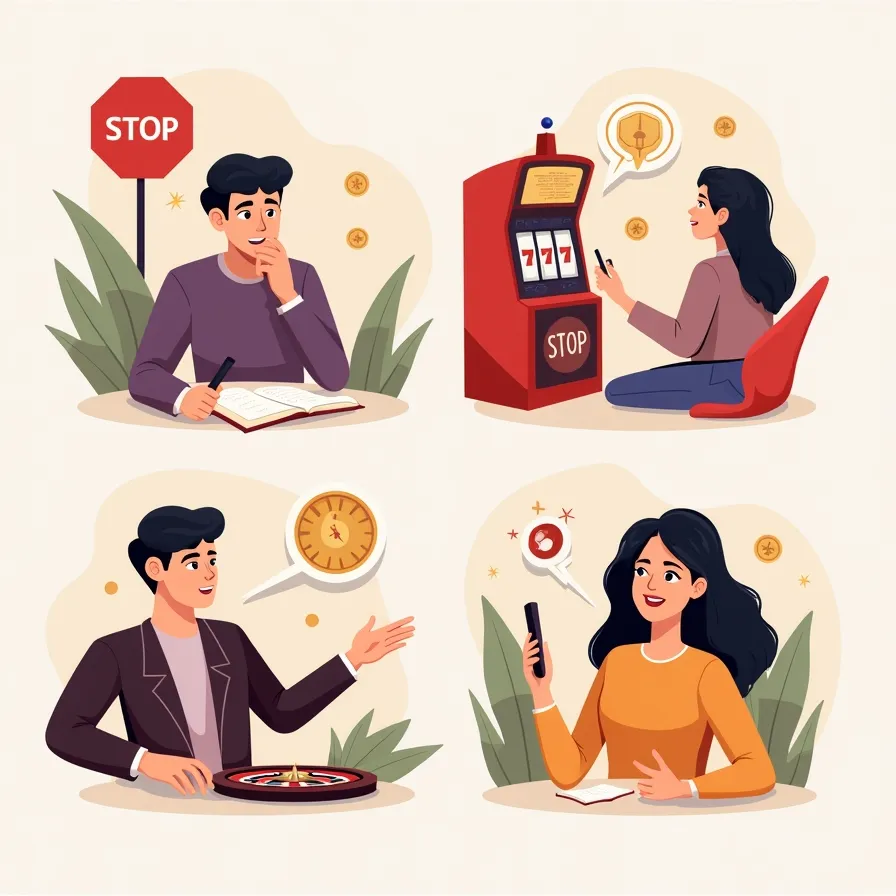The psychology of winning: why you want to bet even more after success and how to control your emotions
Anyone who has ever won at a casino knows this feeling of euphoria: the heart beats faster, the blood rushes to the head, and an irresistible desire to play again arises. But why do we lose common sense after winning? How to avoid the effect of "I am now invincible" and keep emotions within limits? In this article, I will explain the mechanisms of the psychology of winning and share practical techniques for controlling emotions.
Content
- The psychology of winning: why you want to bet even more after success and how to control your emotions
- Introduction: How Winning Changes Your Mindset
- 1️⃣ Why do you want to bet even more after winning?
- 2️⃣ How to avoid the “I’m invincible now!” effect?
- 3️⃣ Controlling emotions while playing
- Useful tips and checklist for the player
- Conclusion
Introduction: How Winning Changes Your Mindset
When you win, your brain's reward system is activated. The neurotransmitter dopamine gives you a pleasant feeling - it's biologically designed to reward behavior associated with obtaining a resource. However, in slot machines and card games do not always follow the logic of "received a reward - stop". Rather, it is the opposite: a win becomes a "trigger" for a new bet.
A striking example from practice: my protégé Andrey won 20,000 ₽ on a slot. Instead of stopping, he immediately bet half winnings to a new game - and lost everything.
Why does this happen? Let's figure it out.
1️⃣ Why do you want to bet even more after winning?
1.1 Dopamine Rebound and the “Chase for High”
- Dopamine loop mechanism. When we win, the brain releases dopamine, and we feel pleasure. But after a few minutes, the dopamine level drops, causing discomfort similar to mild withdrawal symptoms.
- The desire to restore the "high". To experience the pleasant sensations again, we place a new bet. This starts the cycle of "win-bet-lose-bet".
1.2. The effect of "reinforcement on a variable schedule"
- The principle of operant conditioning (B.F. Skinner). In games, reinforcement (winning) occurs irregularly and unpredictably. This scheme is the most motivating to repeat actions - we are ready to bet again and again, hoping for the "next jackpot".
- Why regular winning is not so "addictive". When the reward always happens, we quickly lose interest. But unpredictable "micro-jackpots" in slots every 10-20 minutes keep us glued to the screen for hours.
1.3. Subconscious "self-justification"
- Rationalization. After big win We convince ourselves: “I’m lucky, I’ll definitely succeed one more time.” This is a psychological defense mechanism - to justify a new bet.
- Memory distortion. We tend to remember the good times rather than the bad ones. As a result, we only remember “my five winning spins in a row” and ignore the hundreds of losses.
1.4 Social influence
- Bonuses and leaderboards. Online casinos highlight your success: notifications “You have moved up 3 lines in the top 10 players!” fuel excitement and pride.
- Examples spied upon. If your friends are proud of their winnings and show off large checks, you want to “keep up with them.”
2️⃣ How to avoid the “I’m invincible now!” effect?
2.1. Clear financial framework
- Budget for a gaming session. Determine the maximum allowable the amount of losses before the start of the game and do not exceed it strictly.
- Half win rule. From each big win, withdraw the corpus: take 50-70 % of the winnings, leaving only the rest for reinvestment.
- Automatic limits. Install in personal cabinet Casino daily and weekly limits on account replenishment.
2.2. Keeping a Player Log
- Recordings for each session. Record the date, time, bet amount, winnings, emotions before and after.
- Pattern analysis. After 2-3 weeks, you will identify the moments when the desire to “catch up with luck” arises and will be able to predict your breakdowns.
Practical advice: Write down not only the numbers, but also the reasons for your inner impulses (“bored at home,” “celebrating the New Year”). This will help you understand your triggers.
2.3. Mindful rest
- The 10-minute pause technique. If you want to make a new large one bet postpone the game for 10 minutes: go get a drink of water, stretch, listen to a short meditation. Often this time is enough to cool the excitement.
- Organization of pauses. After each winning or losing streak, take a break for at least 30 minutes.
2.4. Psychological affirmations and self-support
- Anchor phrases: "Luck will eventually run out - I keep my winnings", "Every bet is a choice, not a chance."
- Self-recognition of success. Praise yourself for stopping in time: “I’m a good boy, I refrained from placing an extra bet.”
2.5. The principle of “I do not play under the influence”
- Emotions and saturation. After particularly bright victories, emotions are at their peak - It's better to take a break and get back to the game later, in a calm state.
- Elimination of alcohol. Under the influence of alcohol self-control decreases, and the desire to take risks increases.
3️⃣ Controlling emotions while playing
3.1. Techniques of emotional regulation
- Deep breathing. Inhale through your nose several times for a count of 4, hold your breath for 2, and exhale slowly.
- Progressive muscle relaxation. Consistently tense and relax muscle groups: arms, shoulders, face, back.
- Mindfulness. Focus on the present moment: the sensations of your body, the sounds around you. This will help you “switch off” obsessive thoughts about betting.
3.2. Internal dialogue “Player-I vs. Reasonable-I”
- The "Two Chairs" Method. Imagine that you are sitting on two chairs - one "emotional", the other "rational". Conduct an internal dialogue: the argument "I want more" vs. "it is better to keep the winnings".
- Voice recording. Record short motivational messages to yourself on your phone: “Stop, you’ve won enough already”; turn them on when you feel the excitement rising.
3.3. Managing Stress Outside the Game
- Regular sleep. Chronic sleep deprivation increases impulsivity and reduces self-control.
- Physical activity. Jogging, strength training, or yoga can help reduce stress levels and improve your mood.
- Hobbies and creativity. Drawing, music, cooking - any activity that takes your mind off the bets.
Useful tips and checklist for the player
| Tip | Description |
|---|---|
| 1. Set a strict budget | Determine the maximum amount of loss per session |
| 2. Withdraw part of the winnings | Take at least 50 % from each big win |
| 3. Keep a Player's Journal | Record bets, winnings and emotions |
| 4. Take conscious pauses | The 10-minute rule before each new serious bet |
| 5. Practice breathing exercises | Deep breathing and progressive relaxation |
| 6. Eliminate alcohol | Don't play under the influence |
| 7. Use blocking extensions | Install Gamban, BetFilter and other tools |
| 8. Conduct an internal dialogue | The "Two Chairs" Technique or Recording Voice Affirmations |
| 9. Rest and sleep regularly | Sleep and exercise are the basis of emotional balance |
| 10. See a psychologist | Even 3-4 online sessions provide a significant increase in gambling tolerance |
Conclusion
Victory in gambling brings joy and adrenaline, but without reasonable restrictions it is easy to cross the line between pleasure and uncontrolled risk. The psychology of winning is based on dopamine mechanisms, the principle of variable reinforcement and cognitive distortions that make us believe in our own “invincibility”.
To avoid the “I am now invincible” effect and control your emotions, it is important:
- Set in advance clear financial framework и withdraw part of the winnings.
- News Player's Journal and analyze your triggers.
- Practice emotional regulation techniques: breathing, mindfulness and muscle relaxation.
- Use 10 minute break before serious bets and exclude alcohol.
- News internal dialogue and inspire yourself with motivational affirmations.
By combining these methods, you can enjoy the game while minimizing the risks of impulsive betting. Remember: self-control is a skill, which develops over time. Start today and give yourself a calm and conscious game!




